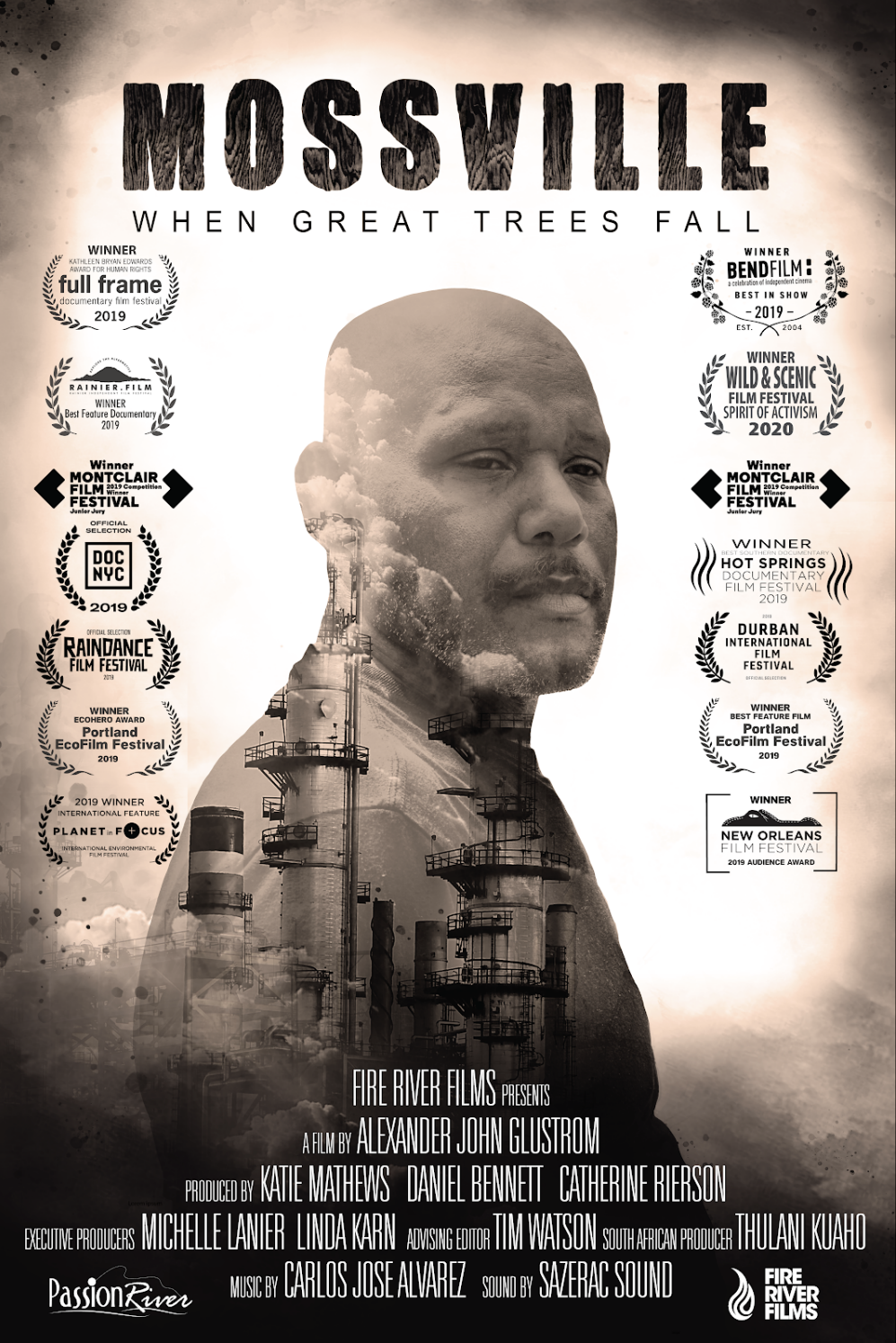The arts and public health are not often close companions, but Brown University’s Pandemic Center is proving the power of filmmaking to deliver important public health messages to broad audiences with relevance and urgency. The second installment of the Pandemic Center’s “Our Storied Health” series, developed in collaboration with Brown Arts Ignite, featured a screening Monday of the 2019 documentary “Mossville: When Great Trees Fall,” directed by Alexander Glustrom.
Jennifer Nuzzo, professor of epidemiology and director of the Pandemic Center, noted the film’s significance in her opening remarks at the Granoff Center for the Creative Arts. “Mossville,” she said, not only illustrates critical themes of structural and environmental racism, but also demonstrates the power of storytelling to expose a public health catastrophe that went largely unreported.
“Mossville: When Great Trees Fall” tells the story of a self-sustaining community founded by freed slaves in 1790. It thrived until the mid-20th century when a coterie of industrial plants were built on its doorstep, including Sasol, a South African-based petrochemical giant. This encroachment culminated in major environmental and health crises, including a massive chemical spill in 1994 that exposed residents to lethal levels of contamination and resulted in an untold number of deaths. Mossville’s residents would go on to suffer a host of ills from the oil refineries, vinyl chloride manufacturers and petrochemical plants emitting millions of pounds of toxins into their air, water and soil every year.
The film focuses in on Stacy Ryan, the last remaining resident of Mossville who resisted Sasol’s expansion efforts despite serious health issues and the loss of almost all of his family members to cancer. After a valiant effort to keep his home, Stacy accepts Sasol’s offer for the sake of his son. The money he receives, however, does not allow him to move his son to a safer region—the bulk of it is instead used to pay his medical bills.
The film reveals a global pattern of environmental racism by pivoting to Secunda, South Africa, where Sasol’s operations have likewise obliterated a Black community and caused significant environmental damage. In this light, “Mossville” is a David-and-Goliath story where Goliath wins, a struggle that underscores the broader narratives of the disposability of marginalized communities under the force of state-approved corporate power.
The panel discussion that followed the film screening featured artists and public health scientists who engage the community to address environmental, health and social issues. They discussed the possibility of resistance in the face of such opposition and the role, if any, of storytelling in this effort.
Erica Walker, RGSS Assistant Professor of Epidemiology, grew up in Jackson, Mississippi—which is currently recovering from a preventable water crisis. She investigates air, noise and water pollution and spoke about the need for stories to drive tangible change. She also cautioned against seeing resilience as an inherent good, which, she said, “can be a trauma response.” Drawing from her journey of leaving, and then returning to, Mississippi to address environmental problems as a public health scientist, Walker stressed the need for real results.
Valerie Tutson, a Brown graduate and director of the RI Black Storytellers and FUNDA FEST, is a revered local artist who employs storytelling to benefit communities. She shared insights from her storytelling career, highlighting the responsibility storytellers have to their audiences.
“The arts help maintain the dreamer so we can get out of bed in the morning,” Tutson said. “Stories need to be told in a way that doesn’t leave the listener in despair but instead uplifts them to fight for greater humanity.” To illustrate her point, she read Claude McKay's 1919 poem “If We Must Die.”
Tutson discussed the importance of presenting stories that portray “strength rather than brokenness.” She also discussed the broader implications of environmental narratives, calling for stories that emphasize the neglect of the planet itself.
The panel also featured Nuzzo and was hosted by Jennifer Galvin, the filmmaker in residence at the Pandemic Center and co-director of the year-long “Our Storied Health” series.
Join the Pandemic Center for the next installment in their “Our Storied Health” series on the evening of Wednesday, April 3, 2024.